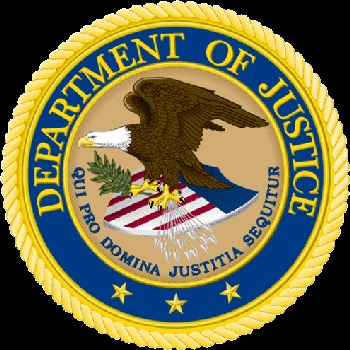WASHINTON D.C.
Two Chinese nationals were charged with laundering over $100 million worth of cryptocurrency from a hack of a cryptocurrency exchange, according to officials.
The funds were stolen by North Korean actors in 2018, as detailed in the civil forfeiture complaint also unsealed today.
 In the two-count indictment unsealed Monday in the District of Columbia, 田寅寅 aka Tian Yinyin, and 李家东aka Li Jiadong, were charged with money laundering conspiracy and operating an unlicensed money transmitting business, officials stated.
In the two-count indictment unsealed Monday in the District of Columbia, 田寅寅 aka Tian Yinyin, and 李家东aka Li Jiadong, were charged with money laundering conspiracy and operating an unlicensed money transmitting business, officials stated.
“These defendants allegedly laundered over a hundred million dollars worth of stolen cryptocurrency to obscure transactions for the benefit of actors based in North Korea,” said Assistant Attorney General Brian A. Benczkowski of the Justice Department’s Criminal Division. “
“Today, we are publicly exposing a criminal network’s valuable support to North Korea’s cyber heist program and seizing the fruits of its crimes,” said Assistant Attorney General John C. Demers of the Justice Department’s National Security Division. “This case exemplifies the commitment of the United States government to work with foreign partners and the worldwide financial services industry to disrupt this blended threat.”
“The hacking of virtual currency exchanges and related money laundering for the benefit of North Korean actors poses a grave threat to the security and integrity of the global financial system,” said U.S. Attorney Timothy J. Shea of the District of Columbia.
“North Korea continues to attack the growing worldwide ecosystem of virtual currency as a means to bypass the sanctions imposed on it by the United States and the United Nations Security Council. IRS-CI is committed to combatting the means and methods used by foreign and domestic adversaries to finance operations and activities that pose a threat to U.S. national security,” said Internal Revenue Service-Criminal Investigation (IRS-CI) Chief Don Fort.
According to the pleadings, in 2018, North Korean co-conspirators hacked into a virtual currency exchange and stole nearly $250 million worth of virtual currency.
The funds were then laundered through hundreds of automated cryptocurrency transactions aimed at preventing law enforcement from tracing the funds.
The North Korean co-conspirators circumvented multiple virtual currency exchanges’ know-your-customer controls by submitting doctored photographs and falsified identification documentation.
A portion of the laundered funds was used to pay for infrastructure used in North Korean hacking campaigns against the financial industry.
The pleadings further allege that between December 2017 and April 2019, Yinyin and Jiadong laundered over $100 million worth of virtual currency, which primarily came from virtual currency exchange hacks.
The defendants operated through independent as well as linked accounts and provided virtual currency transmission services for a fee for customers.
The defendants conducted business in the United States but at no time registered with the Financial Crimes Enforcement Network (FinCEN).
The pleadings further allege that the North Korean co-conspirators are tied to the theft of approximately $48.5 million worth of virtual currency from a South Korea-based virtual currency exchange in November 2019.
As with the prior campaign, the North Korean co-conspirators are alleged to have laundered the stolen funds through hundreds of automated transactions and submitted doctored photographs and falsified identification documentation.
The pleadings identify how the North Korean co-conspirators used infrastructure in North Korea as part of this campaign.
The civil forfeiture complaint specifically names 113 virtual currency accounts and addresses that were used by the defendants and unnamed co-conspirators to launder funds. The forfeiture complaint seeks to recover the funds, a portion of which has already been seized, according to officials.
The defendants are presumed innocent unless proven guilty.
The U.S. Department of the Treasury’s Office of Foreign Assets Control (OFAC) also imposed sanctions on Yinyin, Liadong, and numerous cryptocurrency addresses related to their involvement in activities facilitating North Korean sanctions evasion based on their services and support for malicious cyber enabled activities linked to North Korean actors.
DOJ NOTED:
The investigation was led by the IRS-CI, the FBI, and HSI.
The Korean National Police of the Republic of Korea provided assistance and coordinated with their parallel investigation.

